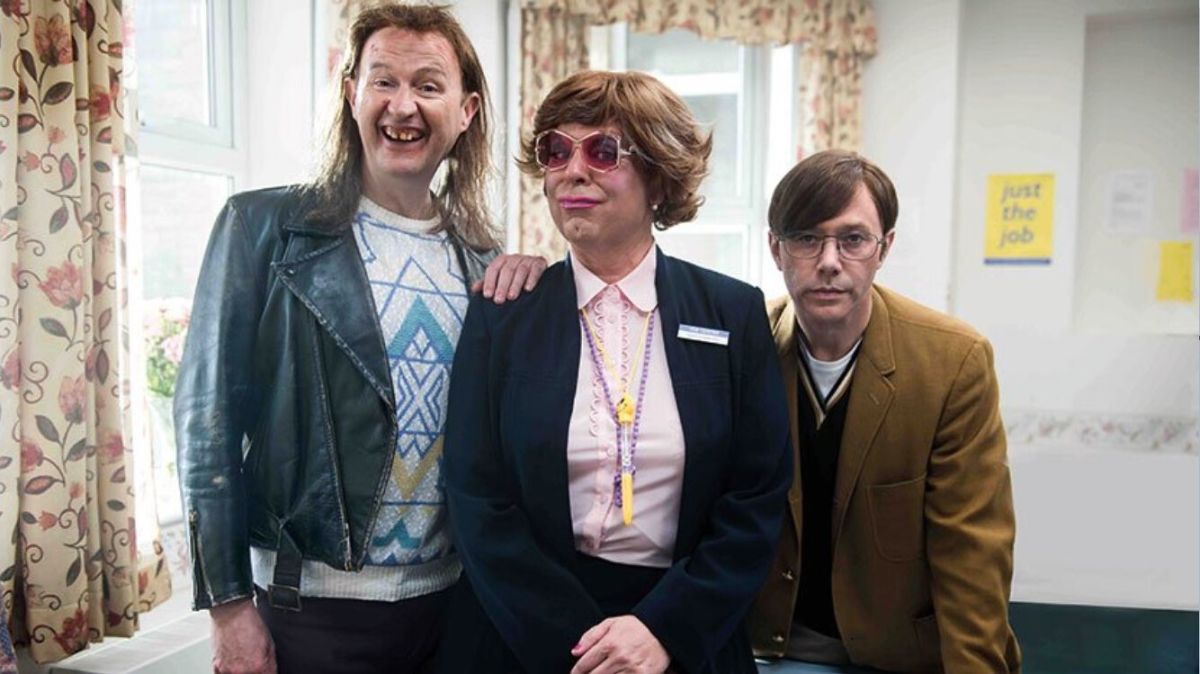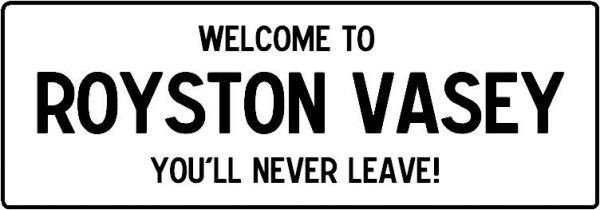
As a through and through Derbyshire lad (note my semi-colloquial use of the word “lad”), there is no better starting point than the The League of Gentlemen. This conceptually unique late ’90s BBC series combines the two rival genres of comedy and horror to, believe it or not, great effect.
Looked at in the terms of comic styles; it complements nuanced character studies with an overpowering element of caricature and the absurd. This may seem fairly old hat, given it can be seen throughout Monty Python and beyond, however it also fuses sitcom with sketch comedy which is far more unique.
The League’s three television series, three live shows and feature film are all set in the fictional northern town of Royston Vasey. Nestled in and cut off by the bleak Derbyshire moorland. The show’s main developing linear narrative concerns the insular town becoming invaded by those who are “not local”.
Whether it be teenagers on walking holidays, the construction of a new road or the moving of the county borders, the citizens of the town battle to ensure that everything stays the same, almost to the point of backwards. “We don’t like change. We don’t even give change!,” demonic shopkeepers Tubbs and Edward holler in series 1.
As a concept, I find their output very exciting. We all know of a ‘strange’ rural town, cut off by geography and seemingly suspicious of outsiders, filled with strange inhabitants and weird normalities. So far, so sitcom.

The conventions of sketch comedy are most apparent in the form of the show. Scenes are short, have a core joke and are just as unrelated as they are related. The other sketch convention is that all the characters are played by three of the show’s writers – Mark Gatiss (familiar as the co-writer and aristocratic older brother in BBC’s Sherlock), Steve Pemberton (familiar to early viewers of ITV’s Benidorm) and Reece Shearsmith (familiar to anyone with any class).
The show has aged remarkably well. It has not diminished in comic merit unlike other cult series. Both Monty Python’s Flying Circus and the Young Ones still have their moments, but are ultimately harder to watch than they once were.
Nor has the show fallen down the crevice along with the likes of Little Britain to be widely recognised as at best slightly distasteful or, at worst, downright offensive. The dark humour lands as well as it ever did. Underpinned by subtle parody of classic horror films which re-enforces that, no matter what dark twists the narrative takes, it is ultimately all in good humour and rarely (if ever) strays into the territory of bad taste.
This quirky, well observed and unique gem occupies a very special area of comedy. When it isn’t laugh out loud funny, it is interesting. When a character is not going through a cartoonish set piece it sparkles with humanity. If it crosses the lines of convention and decency it is for a viable creative reason.
All three television series are currently available on BBC iPlayer; I thoroughly recommend them. If you are looking for work by four of the best comic writers around, look no further. Form, wordplay and sheer number of jokes per page are all top notch. Character performance and directing are also second to none.
So, go on! Give it a go! Make it completely impossible for you to request a bottle of orange juice, greet your friend David or watch a piece of ‘issue based’ theatre without allowing a wry smile to cross your lips.







